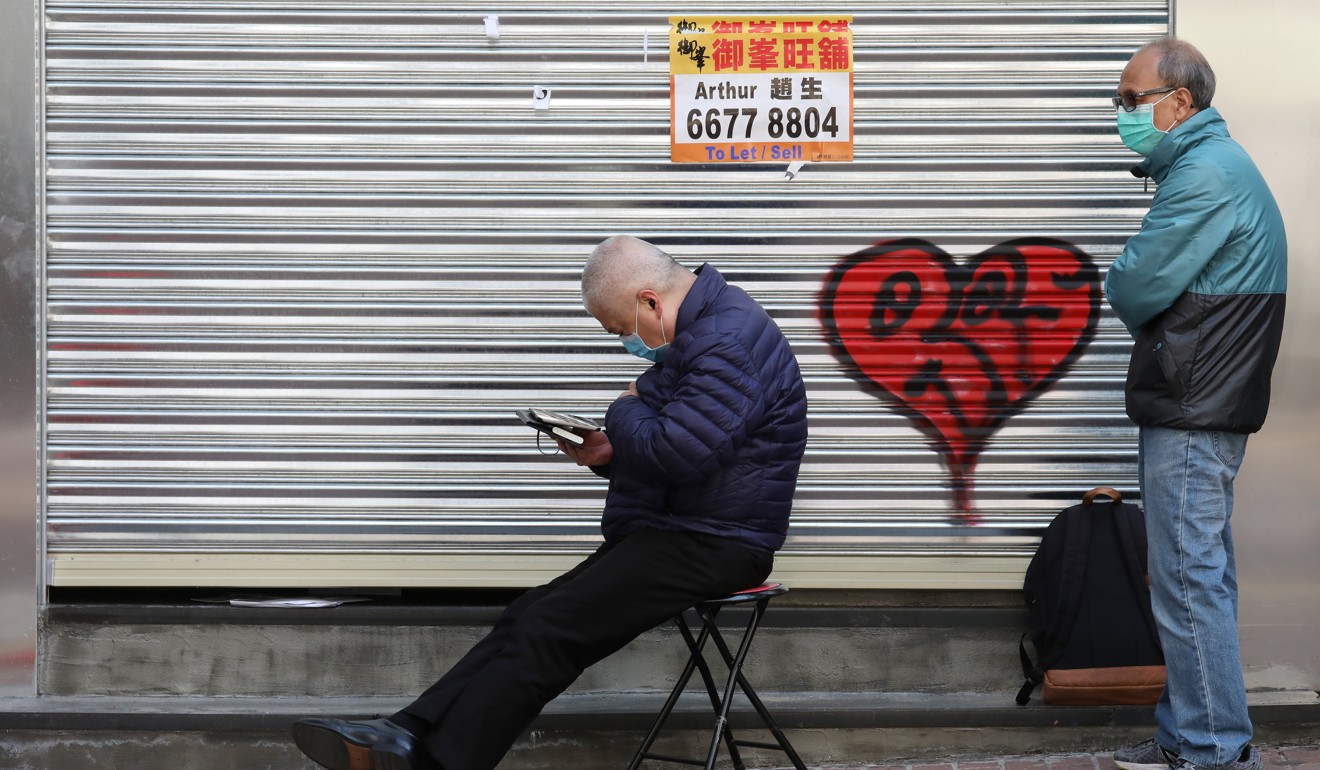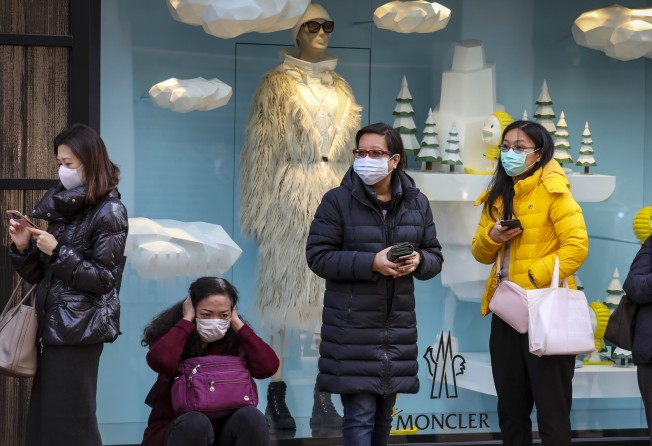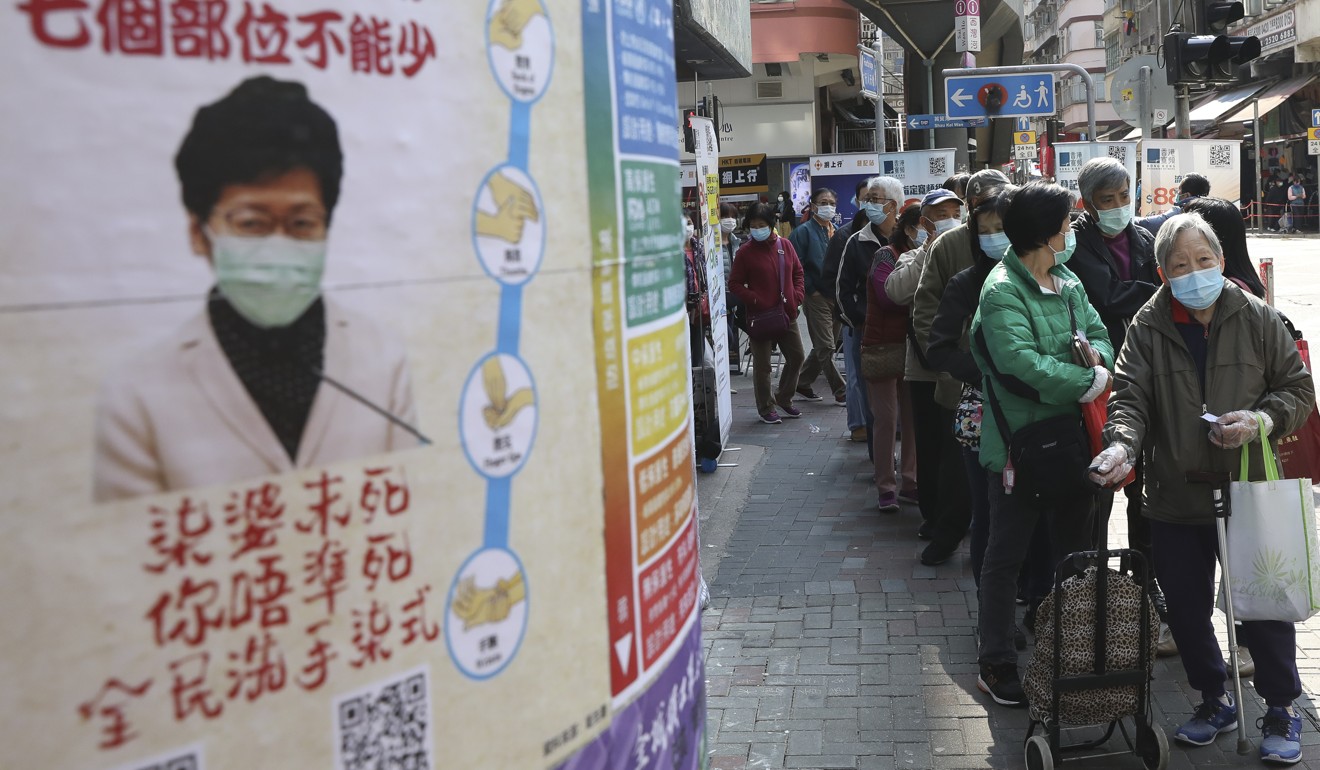
Coronavirus: average Hongkonger’s stock of masks growing, survey says, though many still struggle to source
- Over 65 per cent of city residents surveyed say they have enough masks for a month or more, though NGO says need still great for low-income families
- The number of masks owned by Hongkongers has inched up week by week over the course of three polls

A new survey of Hongkongers suggests the city’s mask shortage could be easing up – at least a bit – though there are still residents struggling to source the protective gear.
The Hong Kong Public Opinion Research Institute on Tuesday said the average resident had a reserve of masks that could last for 25 days – up from 22.9 days a week ago and just 17 days a week before that.
The February 3 to 17 poll of 21,257 Hong Kong residents, however, found that 7.9 per cent of those surveyed had only enough for a week or less.
Despite the long queues for masks still spotted around the city, 35 per cent of interviewees said their face mask reserves could last for a month, while 32 per cent said they had enough for even longer.

About 25 per cent of respondents said they had adequate masks for either two or three weeks, while 4.4 per cent said they could hang on for just one.
At the low end of the spectrum, 3.4 per cent said their reserves would run out in less than a week, while 134 people surveyed said they had no masks at all.
Robert Chung Ting-yiu, chief of the research institute, said while the results indicated average mask reserves were relatively adequate, he remained concerned that masks were being overpriced in the market.
“Please give to people in need if you get hold of enough,” Chung appealed to Hongkongers, noting that some shops had been selling masks for as much as HK$400 (US$51) a box.
Despite the global shortage driven by the deadly coronavirus outbreak, the city government has thus far resisted pressure to use emergency legislation to crack down on price-gouging retailers.
Sze Lai-shan, community officer of the Society for Community Organisation, told the Post she believed that many lower-income families had far fewer than 25 days of masks in reserve.
“Many living in subdivided flats and partitioned cubicles have only got a few, or even none, with them, reusing one for many days,” Sze said.
But she expressed gratitude that many organisations, ranging from property developers to charity groups to political parties, had offered help, saying her NGO had so far been gifted 60,000 masks.
“We have sent half of the masks out to about 10,000 residents, giving to the elderly, poor families, and those with chronic illness,” she said. “We heard nothing from the government.”

Chief Executive Carrie Lam Cheng Yuet-ngor, alongside two ministers, joined various NGOs in distributing surgical masks to the elderly and low-income families on Monday night.
Lam said there were about 1.6 million such masks donated by private organisations and charitable funds that the government was redistributing to the underprivileged.
Demosisto leader Joshua Wong Chi-fung, meanwhile, said his party had bought another 1.2 million masks from Honduras and already shipped them to the city.
“The masks will be delivered to underprivileged sectors through pro-democracy district councillors,” Wong said. “In a failed state like Hong Kong, Carrie Lam only knows how to suppress, but not govern.”
Wong had earlier secured another 100,000 masks from the United States and sold them all at cost online within minutes.